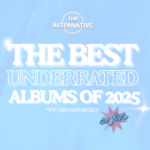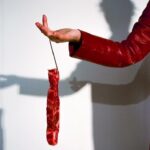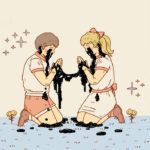Album Premiere + Interview: Terrible People—’Like Clean Air’
Posted: by The Alt Editing Staff
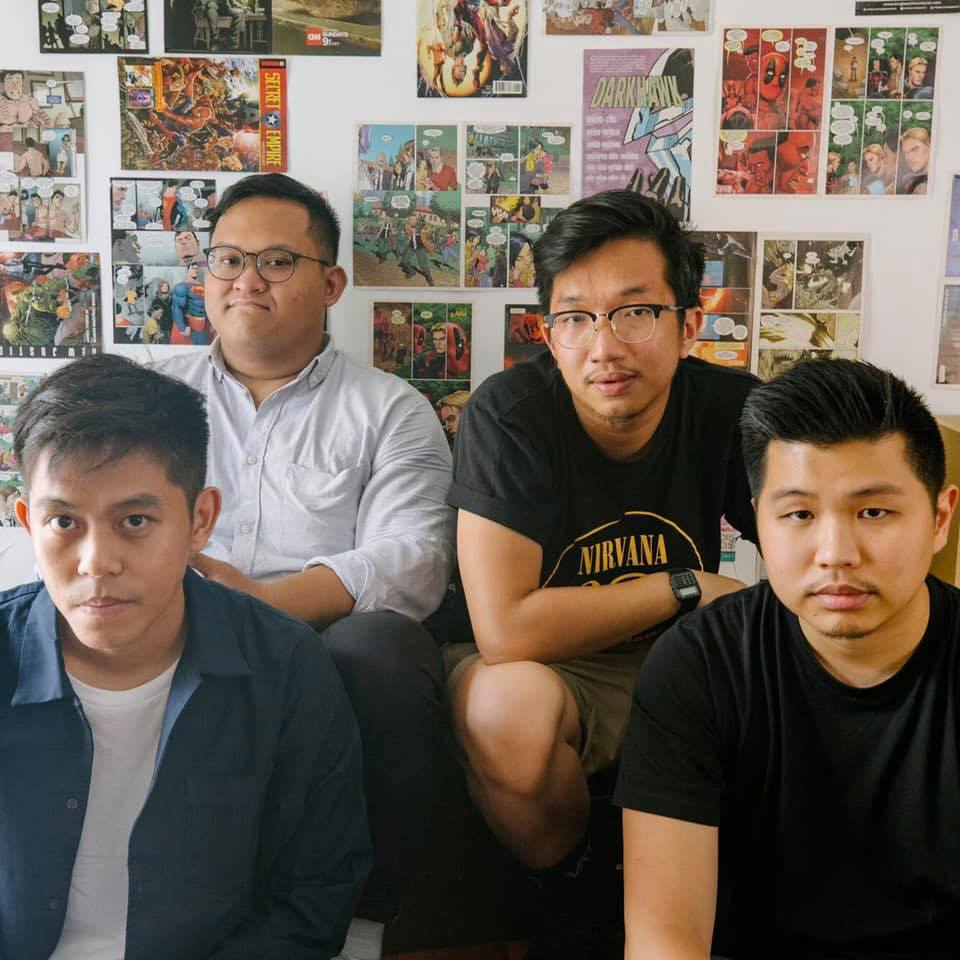
Photo by: Joshua Loh
Terrible People are both Singapore’s best kept secret and proof of the scene’s history of vitality and creative growth. A lot of Western listeners may have missed their debut album of scrappy pop-punk songs, Smoking Man, but the band has been active since 2016, organizing shows and supporting the local scene to the extent that they formed their own label, Tired Records. Their new album Like Clean Air is a huge leap forward for the band; the production value has received a boost thanks to mixing and mastering from Zhang Bo (of indie/bedroom pop band Cosmic Child), and the songs are their strongest to date. “Peachy” opens the record in classic emo tradition with gang vocals and twinkly guitar noodling, building into a huge sing-a-long outro, while songs like “Kismet” and “My Good Nine” are packed with infectious pop-punk hooks.
Stream the record below ahead of its release this Friday, and then read our conversation with the band about their origins, their new album, and the state of Singapore’s emo scene.
Give me a brief history of Terrible People: how did you come together?
Alif: I’ve known Koon How since we were 17 back in junior college (that was 2009). We were in the school band – I played saxophone and he played trombone. Fast forward to 2016: we were both studying abroad – me in London, and Koon How in Boston. We were going to whatever shows there were in our individual cities. It’s unlikely that our favourite bands would come to Singapore, so we took every opportunity to watch whatever bands we could. My personal favourite sets were Modern Baseball, Into It. Over It (I saw Evan Weiss again playing an acoustic set in the basement of some bar a few days after), The Hotelier, Andrew Bird, and Dr. Dog.
I’ve been making music on and off in my bedroom for years, and had a slew of failed bands that went nowhere, so I never found the drive to make music during the first few years of college. The frequency of watching so many great bands play got me inspired again. I texted Koon How – who himself was going to gigs in America – and asked if he wanted form a band once we got back to Singapore. He agreed, and here we are.
Koon How: I used to write songs for fun, record them, and then delete them after a few months. The process repeated itself every semester. I think I might have some of these songs in my MacBook still. They sound really folk-ish, Americana, acoustic type music – think Gaslight Anthem (B-Sides), Chris Cresswell (of Flatliners), and Derek Archambault (of Defeater).
During my study abroad programme in Boston, I met a bunch of people who also wrote their own music, and we would jam to each other’s songs. It was a really beautiful experience and it was then when I decided to try writing more songs. So when Alif asked, I was like “why not” and sent him some stuff.
Hadi: I met Koon How in university, and we had spent a lot of time between classes talking about older bands we loved like No Use for a Name and Polar Bear Club. We were talking over dinner after he got back from Boston when he told me he was starting a band. I told him I could play bass but he probably thought I was kidding, because it was only after a few weeks later he got back to me asking if I meant it. I finally met Alif and we all played the first set of songs from Smoking Man on acoustic guitars in his living room.
Edison: I got to know Koon How after taking a few of the same modules together in university. I think the other three were already sort of a group before I came to know of the band. One day, I saw Koon How post on Instagram about a tape of acoustic recordings that the three of them were working on. Prior to this, I bought a set of electronic drums wanting to learn how to play and had been practicing at home occasionally for a few years. So when I saw the Instagram post I jokingly asked him if I could play drums for them. To my surprise, he sent me the acoustic songs, and arranged a jam session to add drums to the band, and that was that.
What were the first Terrible People shows like?
Alif: Our first show was in 2016 was actually an open mic thing and we were the only full band that night. It was pretty weird because it was a typical acoustic singer-songwriter session, and people were all seated on the floor.
The next show was one we put up ourselves. I remembered Xingfoo&Roy playing an amazing set that night and the crowd was really having fun, and [I] thought to myself, “Wow, we really have a lot of work to do.”
We made a $20 profit from door sales which was pretty sick. I spent my $1.50 share on coffee the next day.
Our third show was the first time someone approached us to play a show, so we’re forever indebted to Anvea (guitarist of Yumi) who owns a local venue/rehearsal space called Lithe House, who put us on the bill for the venue’s monthly instalment of shows (Sound of Feeling). She was really helpful and helped us a lot when we first started out. We actually held our first EP launch at Lithe House, and till this day still rehearse there.
Like Clean Air is a step forward sonically; it’s your most well-produced set of songs. Who did you record with? What was the process of making the record like?
Koon How: When we recorded Smoking Man, I think the intention was to put ourselves as a full band out there. I was reading up on DIY recording techniques on my own while I was serving National Service and when I was a freshman in university. Everything I knew back then when recording the EP were all learnt from YouTube and Google. The idea was to have something really simple for the EP.
I remember one drunken night at Lithe House with Zhang Bo from Cosmic Child and he was telling me how much he liked our stuff and that he would like to produce our next release, though I am very sure he has forgotten about this.
When Cosmic Child put out Blue last year, I thought it was a really beautiful record. I thoroughly enjoyed the clarity it had – something Smoking Man lacked. I knew Bo and Daniel Pei (guitarist) were very inspired by “emo” music when making their record. So immediately, I knew who I wanted to work with next.
The album opens with the line “I felt older trying to pay all my dues to people that I’ve left behind trying to make it in this future.” When I listen to your albums, Smoking Man feels like more of the party and chaos record; Like Clean Air seems more reflective. There’s a theme throughout the Like Clean Air of looking back and re-evaluating past experiences. What differences do you see between the two albums?
Alif: It’s tough to say if we were conceptually conscious of the songs we were writing. Smoking Man came out as just a set of songs we had after 3 to 4 months of being a band. Like Clean Air was conceived the same way: no exact theme in mind, just some songs we had after writing for about a year.
I guess the biggest difference between the two is the contexts of when the writing happened. Smoking Man was easier to write. We were in the final of year of university. We met up to write and rehearse twice a week. I had my dorm’s rehearsal space so we could use it for hours and for free. Plus, it was our first time making music, so we had an “anything goes” kind of attitude.
Like Clean Air however was mostly written on a tight schedule. Because of work, we could only meet up once every 2 to 3 weeks. Even then, it was for 2 hours and we had to pay for the rehearsal space. Also, we now had some degree of expectations of ourselves. That made the process incredibly long and frustrating.
The tensions of this new phase of our lives forms that kind of context in which a lot of these songs were written in.
Edison: The main difference was that the number of weeks it took to make Smoking Man was the same number of months it took to make Like Clean Air. Haha.
The scene that you and bands like Forests and Xingfoo&Roy are a part is often described as “emo” music. Do you feel like that word connects with what you’re doing?
Alif: Sure, but at the same time I think none of us are exclusive to that term. We do see our music being well received in “emo” communities abroad or over the internet, primarily because there’s that instantaneous understanding of what we’re going for musically when you understand the stylings of a genre.
In Singapore, it’s more common to see mixed-bill shows. There aren’t a lot of bands within a specific genre of music here, so it doesn’t make sense to confine ourselves to a label. We’re good friends with and have played alongside local bands that aren’t necessarily emo, like Cosmic Child (shoegaze), susurrus (math rock), Bethari (emoviolence) – and I personally appreciate the diversity that exists within this small Singaporean soundscape.
Koon How: I used to hate the “emo” label and then I realized it is just a label. I’m less bothered by it now. That’s mainly because people in Singapore still refers “emo” to that guyliner, studded jewelry, skinny jeans trend, which I was part of, 10 years ago.
The members of Terrible People also run the label Tired Records. What led to the decision to start a record label? Did you have any models or guides you followed when starting?
Hadi: I felt completely clueless at various points as a band: while we were trying to get ourselves on shows, trying out recording on our own, [and] putting our music out to relevant communities. We tend to be a bit more careful and pragmatic while making decisions, but in doing so we have discovered so many ways to better manage ourselves.
Alif and I, along with our close friend Dylan (Bethari), are always looking out for up-and-coming bands. We’ve a ton to learn, and we’re looking to take it from bands and labels who have gone on to do much bigger things. I guess we were looking for a way to reach out to bands and using what we’ve learnt while working in Terrible People to make the administrative side of things less painful for them.
Our friend Bo, who recorded and produced Like Clean Air, is a part of a local label called Middle Class Cigars. We’ve learnt a lot from their model of managing bands and marketing them regionally. Bo has been instrumental in opening our eyes to the practice of running a label.
Tell me a little about the local scene in Singapore. Who are the active local bands? Are there any challenges to doing independent music in your area?
Alif: I’d like to say that the scene has seen has grown, and it seems the rhetoric regarding local music has significantly shifted since back when I was in school. People around me used to say local music sucked, and that stigma stuck with people for a while. But as I got more involved in the last few years, you see bands like Sobs and Forests massively packing out venues – it’s tough to say that the negative sentiment I grew up has continued until today.
Alongside those bands, I’d give a little shout out to Subsonic Eye and Long Live The Empire, who have been killing it lately.
What do you think the outside perception is of Singapore’s music scene? What do you think people misunderstand / don’t know about your scene?
Alif: To be honest, I never really thought anyone cared about Singaporean bands until only recently. Aside from the big bands that have already made a mark internationally like Wormrot, The Caulfield Cult and, more recently, Forests and Sobs, I never figured anyone would care about lesser well-known bands like ours.
Koon How: I feel people are generally shocked about how substantial the community or scene is here, especially if they come from countries with more established scenes or communities like the US.
What bands are you listening to right now?
Alif: I’ve been jamming out to a local hardcore band called Charm and their EP Pleaser. Not usually a fan of hardcore, but this one’s really groovy. Some other bands I’ve been listening to would be Like Roses, By the End of Summer, [and] Coffee Breath. Also, check out “Write Out a Foul” by Morethan – a Japanese band we’re going to play with on tour.
Hadi: A lot of Origami Angel, the new record from Knope, and this really incredible screamo band Letters to Catalonia. I also have The Movie by I Love Your Lifestyle on repeat.
Edison: Haven’t been listening to any music for the past few months but when I do I’ve been putting 2 songs on repeat: “Fountains and Tramways” by Beirut and “Blend” by Trauma Ray.
Koon How: “Bodys” by Car Seat Headrest. It’s the only song I’ve listened to in the past 2 weeks. Nothing else.
What are your goals in the coming year for the band?
Alif: To just play more shows, both locally and abroad. I think that’s the best way to build up a listenership organically and promote the record.
For Terrible People, we’re already going on tour to Japan and Taiwan in June, but I think we have some plans to tour in a few countries in the later half of 2019.
What are your goals in the coming year for the label?
Hadi: Tired [Records] is looking to spend the next few months bringing one or two more bands on board. We’re also working on a local compilation, and we’re really excited about that!
Terrible People will be touring with Forests in June, followed by a pair of dates in Taipei. Like Clean Air officially releases on 5/31/19 through Tired Records; in the U.S., the album will be released on cassette through Chillwavve Records, and can be pre-ordered through their website.
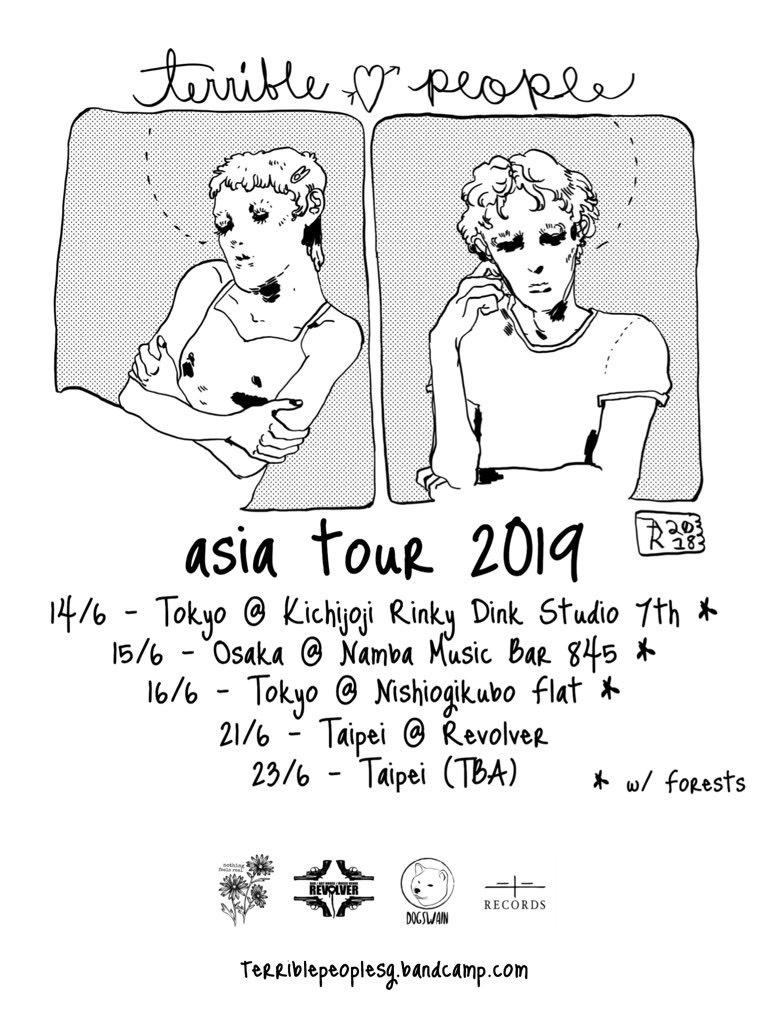
–
Keegan Bradford // @FranziaMom
The Alternative is ad-free and 100% supported by our readers. If you’d like to help us produce more content and promote more great new music, please consider donating to our Patreon page, which also allows you to receive sweet perks like free albums and The Alternative merch.

